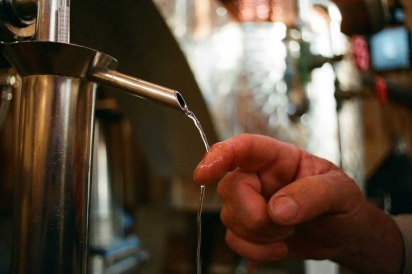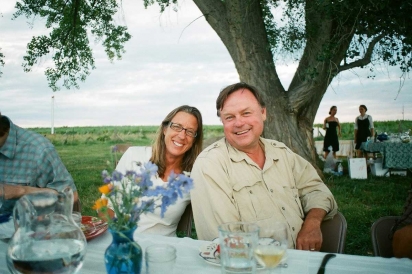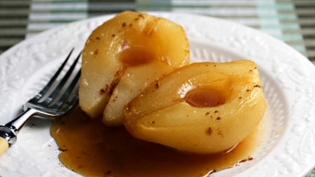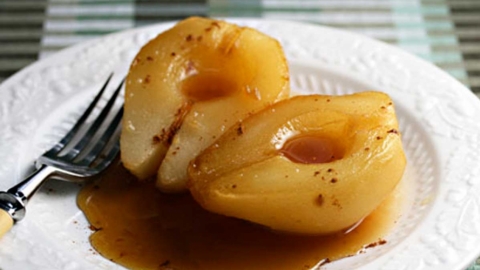Jack Rabbit Hill Farm Gets Crafty with New Small-Batch Hard Ciders
It’s a damp, dismal, late October day in Hotchkiss, but that doesn’t alter the fact that Jack Rabbit Hill Farm—the 70-acre biodynamic (BD) vineyard and distillery owned by Lance and Anna Hanson—is stunning. Their wood-and-rock house-cum-tasting room (a new, dedicated tasting room above the distillery will open around Thanksgiving) is perched overlooking the grapevines and neighboring fruit orchards. I approach the front door, where farm dog Luna and a plump Plymouth Rock chicken stand guard, seeking shelter from the rain.
Lance shows me inside, where we discuss hard ciders made with apples and pears—the newest products from the farm. The Hanson’s have already made a national name for themselves with their CapRock Organic Eaux de Vie (brandies), Gin, and Vodka, made with wine grapes.
In July, the Jack Rabbit Hill team released their first cider under the New Avalon brand name, made with Jonathan, Braeburn, and Winesap apples from nearby Ela Family Farms. I first tried the cider at Sustainable Settings’ annual Harvest Festival, and was immediately intrigued by its crisp, faintly effervescent quality, light body, and subtle aromatics. For anyone who’s ever choked down a cloyingly sweet or overbearingly acidic hard cider, Jack Rabbit Hill Farm’s New Avalon Pale Cider comes as a revelation.
That’s exactly as it was intended, says Lance. “I think we’re taking a different approach than other cider makers, informed by our wine and spirits making, and that’s driving our cider program. We want to offer consumers what they get from a great wine or spirit: great aroma, mouthfeel, finish, complexity, and compatibility with food.”
The approach Lance is referring to is their method of using the whole fruit—skins, seeds, and all—in the New Avalon Cider production process. Most cider producers first press the whole fruit to make juice and then ferment the juice to make cider. Explains Lance, “Our mission has always been about showcasing the purity and natural goodness of well-grown, expressive fruit. Whole fruit fermentations help us do that, whether we’re making cider, wine, brandy, gin, or vodka.”
During my visit, the farm crew was working on one of their 2015 ciders, which is made with Demeter-certified biodynamic apples from Filigreen Farm in Northern California’s remote Anderson Valley. Explains Hanson, “We’re big supporters of the best growers in our valley, but our volume requirements are starting to exceed what we can get locally. The folks at Filigreen are world-class growers with exceptional farming practices and fruit. We stand to gain so much from them, and not just in terms of excellent apples. They can show us a lot in terms of effective, low-input farming practices.”
New Avalon Organic Pale Cider is available at the following Roaring Fork Valley locations: Cooper Wine & Spirits, Sopris Liquor and Wine, Roaring Fork Liquors, Four Dogs Fine Wines & Spirits, and Town Carbondale. New Avalon Organic Pear and Filigreen Biodynamic Ciders will be released in time for Thanksgiving; contact Anna Hanson at anna@jackrabbithill.com for more information and availability.
